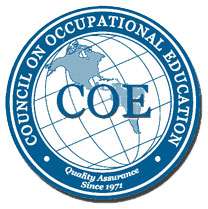Keeping up with bills and putting food on the table has never felt like such a challenge.
Many people are looking for second jobs, or higher-paying opportunities, to cover the rising costs of living. More than 35% of Americans claim it’s difficult to pay their monthly bills. If you’re sick of going from paycheck to paycheck, there is a remote job that can help.
Medical coding jobs are open, creating the perfect chance to start a promising career. Whether you’re a new graduate or not, you can get into medical coding without experience. Keep reading below to learn how!
Understanding the Role of Coding in the Healthcare Industry
Before you start applying for medical coding jobs, it’s essential you know what you’re signing up for.
Medical coders help healthcare institutions provide the best care to patients. They ensure records are accurate and updated for every change. Without these experts, offices would have slower response times and each appointment would take longer.
If you recently graduated or want to change career paths, this job can make a difference in your life while you also benefit the community. Take a look at the info below to learn more about their role in the office.
Basics Duties & Responsibilities
Medical coding professionals have one responsibility that encompasses the rest.
This job involves translating medical documents, of all kinds, into universal codes for record keeping. After receiving notes, reports, and diagnoses, coders input them into a system with a standard language for the industry. The universal medical alphanumeric code is the language you will need to learn.
If you want to learn about the pros and cons of the job, you can read our Insider Insights article. Although this job requires close attention to detail, most people don’t feel overwhelmed with the tasks. Healthcare Career College will help you prepare for the role, whether it’s remote or local.
To be successful in this role, you must have good time management and organizational skills. You will also need to work with medical staff and insurance companies when there are information disputes.
Impact on the Office
Aside from helping doctors and nurses, medical coders also assist the administrative team.
Coders can review info and input the raw data into a system to calculate billing. Record-keeping, billing, and administrative teams can all benefit from working with a medical coder. Since coders help save time for people in the office, it’s a job that’s in demand and helps make processes more efficient.
Medical coders also work closely with insurance companies. Insurance providers need updated info about their clients to determine their costs and coverage. If you become a medical coder, you will act as the middle-man and help translate communication.
Knowing about the benefits of medical coders can help you feel confident about applying. Even if you don’t have any experience, you can help market yourself to hiring companies. Experts agree that even if you don’t have experience, you can still be an asset to the team and it’s always worth applying.
Explore the Different Types of Codes
Medical professionals must abide by HIPAA laws at all times, which can make billing messy.
Without a clear description of services and results given at an appointment, it’s difficult to know what insurance will cover. To help protect patients, codes are given so they can be reviewed without obvious identifying details. Each country has unique codes for its processes, but it goes much further than that.
If you’re interested in getting a medical coding job, it can be helpful to know what you’ll be working with. Read further to discover if any types of codes are interesting!
International Classification of Diseases (ICD)
Some medical issues can be so large spread that countries around the world need to use the same billing.
The International Classification of Diseases was created by the World Health Organization. The purpose of this is to help countries and medical professionals record and report infections and their type of resistance. ICD coding increased at the start of COVID-19 since it was a global pandemic.
With this specific coding, research teams can compare medical statistics to learn more about the infection or illness. Another purpose for this coding is to classify mortality data and certificates of death. When all of this data is looked at from a larger perspective, experts can find trends that are leading to deaths.
Current Procedural Terminology (CPT)
There are endless coding positions that involve CPT, it’s the main code for surgical and medical procedures.
Procedural terminology helps insurance companies and staff see details related to a procedure. These services are different than general healthcare, as they involve better supplies and staff. Both public and private companies use CPT during genome testing, evaluations, lavs, and radiology.
Simply put, these codes express what is given or done to a patient during their time of care. These details can include info about prescribed medications, medical equipment, and surgeries. Take a look at our Medical Billing and Coding program to start preparing for the role!
Healthcare Common Procedure Coding (HCPCS)
If you’re interested in learning about the language of diagnoses, HCPCS coding is the place to start.
Common procedure coding is divided into two levels, which our school can help teach you. Medicare and other insurance use these codes to classify diseases and make diagnoses, based on the client’s symptoms.
Aside from diagnostic uses, HCPCS can also represent supplies, medical procedures, and services. This can get a little complicated since CPT and HCPCS can overlap. Our programs help clarify the difference so you’re prepared for the job.
Find Your Path to Medical Coding Without Experience
Nearly 80% of job candidates in the United States have lied on their job applications.
You don’t have to lie or supplement your resume with a medical coding position. This job is tailored for people who want to begin an exciting career after graduating, without having to get another job first. Aside from new graduates, mothers returning to work and single parents can benefit from applying to this position.
We have provided the following steps to help you find a perfect coding position!
Learn about the Role
The more you know about medical billing and coding, the easier it will be to find a position without experience.
Many people give up on opportunities because they are intimidated by the positions. Researching this role, however, can help you feel confident in your decision, especially if you’re changing career paths. Medical coding can be complicated so you must learn what’s involved before committing to the role.
If you want to learn more about the medical billing career path, one of our recent articles can give you another perspective. Some people also get a job as a billing assistant to gain exposure to the job and related responsibilities. Working your way up will help you gain the most info about the job and you’ll discover how the roles are interconnected.
Get Certified
Although you don’t need experience or a formal degree, a certification is still needed.
To become certified, you must display your knowledge of healthcare policies that are related to coding and billing. These certifications are tailored to a type of coding language, but you will benefit most by learning them all. Our school offers an excellent certification program so you don’t have to search for one.
If you’re committed to the job, you can complete an associate degree program in medical coding. This experience isn’t always necessary for every job, but it can open more opportunities for the future. At the end of each certification program, you will have to take an exam and pass.
Start Hunting for Jobs
Searching for a job can be stressful, but now that you’ve narrowed your options, you should have an easier time.
Before you start submitting your application and resume, you need to know what you’re looking for. There are remote and in-person medical coding jobs, and you may have the option to choose which style works best. Many people recommend applying for all coding jobs in the area so you don’t limit your options.
Online job sites, social media, and newspapers can help you discover new opportunities. Take the time to research the company you’re applying to, as this info will be useful in the interview process. Similar to other industries, you will need to go through the application and interviewing phases to ensure it’s a suitable fit on both sides.
Begin Your Profitable Healthcare Journey
While many people are spending their money at the doctors, you can be making money.
You can get into medical coding without experience if you have confidence in yourself. Since these jobs are remote and don’t require much, if any, experience, they are a realistic position in the healthcare industry. Whether you’re looking for a short or long-term position, this role can help you pay bills and save for the future.
If you want to learn more about other positions in the healthcare industry, check out our job placement page to find the perfect fit!




